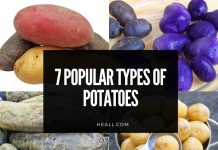Table of Contents
Humans vs. Bovines
Mammals are the only creatures on this earth whose bodies naturally provide the sustenance their young require to thrive. Mother birds hunt bugs and other small prey, gorging and regurgitating for the babies in the nest.
Mother fish generally do nothing whatsoever, just lay their eggs and swim away, leaving the male to do the work – or die, depending on the type of fish. However, warm blooded creatures such as cows, goats, dogs, even mice all have what are called mammary glands, which produce nourishing milk created to meet their baby’s every need.
Cow’s Make Milk for Calves, Not People
I’ll put money on it that you have never seen a cat nursing a gerbil, or a horse nursing a dog, so why do we as humans believe that what comes from a cow’s teat “does the body good”?
The milk industry has been throwing propaganda our way for many, many years. Dairy products are supposed to keep your bones strong and healthy, and provide all the calcium your body needs; it’s essentially become a fall back for all of those people who would rather not get the exercise their bodies require to thrive and stay healthy.
People living prior to the nineteenth century did not often drink milk. Generally, the only thing they used it for was to nurse their babies, if they could not nurse themselves and did not have access to a wet nurse, or if, for some reason, the baby did not have the ability to suckle.
People in most countries of the world today also do not drink milk, and studies show that “On a nation-by-nation basis, people who consume the most calcium have the weakest bones and the highest rates of osteoporosis. Only in those places where calcium and protein are eaten in relatively high quantities does a deficiency of bone calcium exist, due to an excess of animal protein” (Researchers at Yale University).
Another study that was published in the year 2000, in the American Journal of Clinical Nutrition, came to the conclusion that those people who ate copious amounts of fruits and vegetables had stronger bones and higher bone density than those people who ate less veggies and drank more milk. Studies have also found that certain hormones found in cow’s milk link to breast cancer, zits, and gastrointestinal distress.
Other Healthy Ways to Get Calcium
There are different ways to get the calcium your body needs without resorting to drinking milk. You can eat broccoli, bone in salmon or sardines, cooked collards, bok choy, or cooked turnip greens. And the alternatives to calcium rich drinks such as milk or cream are soy milk, or rice milk, both of which aren’t detrimental to your health like dairy products. They will also put a stopper on any lactose intolerance, which, most likely, you do suffer from, whether you have noticed it or not.
The Journal of the American Dietician Association reported in 1996 that over 70 percent of both African and Native Americans suffer from lactose intolerance, 95 percent of Asian Americans, 50 percent of Mexican Americans and 15 to 20 percent of Caucasian Americans. That’s a whole lot of gas, nausea, stomach cramps and bloating. It’s especially hard to comprehend when the problem is so easily rectified.
With the number of reasons listed above, and with many more available on the Internet, why do people still insist on consuming dairy products? Especially with such simple and tasty alternatives to said dairy products, is there any way you can justify your daily intake? All I have to say is: If you’ve got osteoporosis, zits, gastrointestinal problems or sick kids, you have most likely Got Milk.
Resources:
- Bovine Growth Hormone: It’s like crack for cows!
- Lactose and Lactose Free Food
- Information on Osteoporosis



